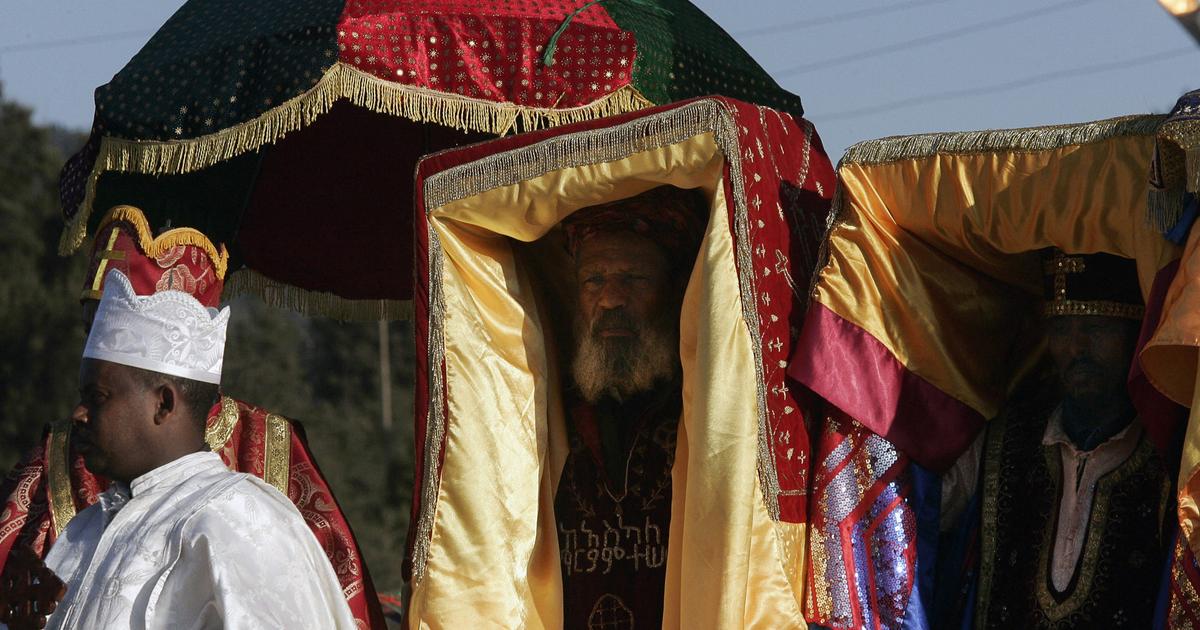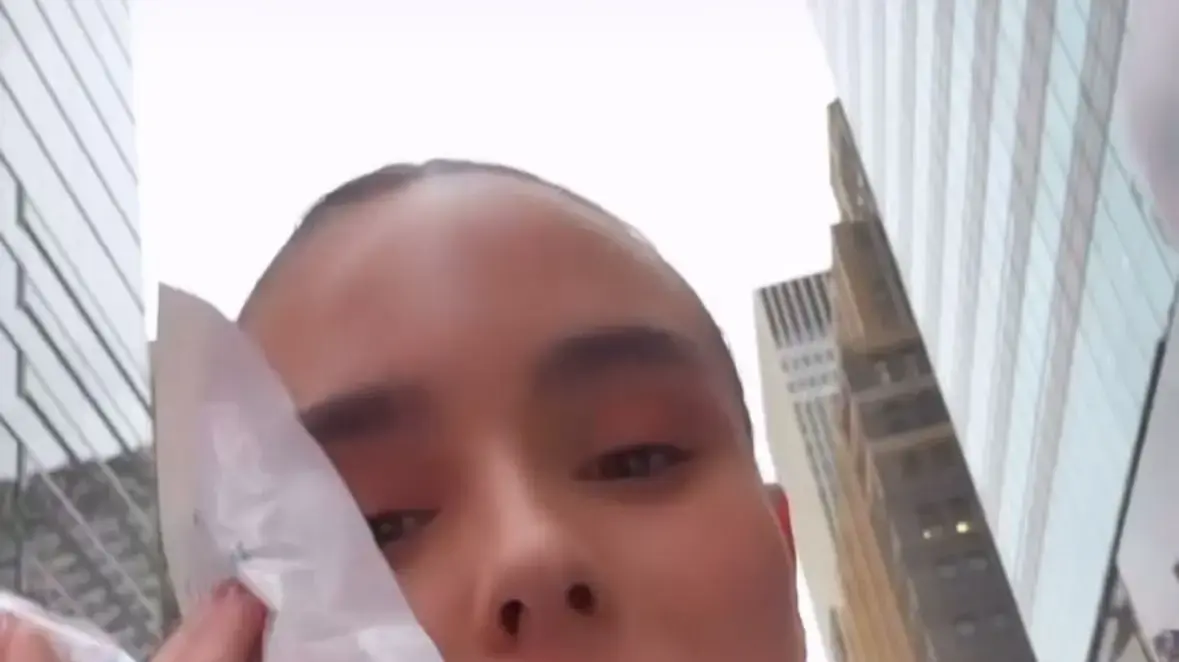Sani* picks up a horizontal wood.
"It's the 'Ayo', have you never played?" He asks his partner Musa, proposing a game to teach him.
Sani, 26, places the board on his knees and the 48 balls in the twelve holes tremble on his leg that does not stop moving, while Musa silently gazes at the ground.
"The truth is that when I entered here I was not very happy," says Sani.
Three months ago, he checked into the Adicare Rehabilitation Center, where he was diagnosed with a mental and behavioral disorder associated with his marijuana addiction.
It was not the first time he had been admitted to the center.
He spent a few months in 2021, but when he left he relapsed.
This time he is clear that it is definitive.
“This time has changed my life, I am no longer the same person.
Yes, I'm still in the same body, but I don't have the same mentality at all," he says.
Sani, the management of the animation company he had launched five years ago, was consumed by it and began taking marijuana to relax.
Little by little he increased his consumption of her until she couldn't live without it.
Musa, 30, was working in a restaurant while studying for a university degree in Physics when she started using tramadol and codeine, two painkillers that can cause dependence.
She has been in the center for six months, although she recognized her problem much earlier.
“I told my parents in 2018, but they had a hard time accepting it, they just wanted me to finish my degree,” she says.
The case of Sani and Musa are an example of the addiction problem in Nigeria and society's rejection of people with mental health problems.
A 2020 Africa Polling Institute report concluded, after interviewing a significant sample of the population, that Nigerians believed drug abuse was the leading cause of mental health problems, followed by so-called “brain” diseases and mental illness. possession by evil spirits.
Mental problems have been a taboo in Nigeria for decades and the lack of government recognition worsened a situation of neglect and stigma.
All this means that, in the African country, less than 15% of people with mental health problems have access to the treatment they need,
One of my neighbors even told me that she was allergic to people with mental problems and another did not accept my money when buying in her business
Veronica Ezeh, nursing manager at a neuropsychiatric hospital
There is also no official state data in the country on the number of psychiatrists, psychologists, social workers and infrastructure in medical centers, although professionals in the sector claim to be only about 200 psychiatrists and 150 psychologists in a country of 200 million inhabitants.
The WHO page dedicated to mental health in Nigeria is stark proof of this lack of information.
The Law of Madness
Last January, President Muhamadu Buhari signed the country's Mental Health Law, which aims to put an end to the abuses that have been reported over the years, expand public investment, professionalize care and better protect the patient.
Until this year, the so-called Lunacy Act was applied in Nigeria, a colonial text in force since 1919 and which was modified in 1958, two years before the independence of the United Kingdom.
"The problem came from their own name, they were considered lunatics," says Veronica Ezeh, head of Nursing at the Yaba Federal Neuropsychiatric Hospital in Lagos.
The very name of the law generated a social stigma towards mental health in the country.
“One of my neighbors even told me that she was allergic to people with mental problems and another did not accept my money when buying from her business,” says Ezeh.
Professionals and the different mental health associations in the country have pressured, publicly and privately, for this vision to change, even going to court: "We have even gone to court because these patients have rights," says Ezeh.
“For years we have not had a voice, we have been rejected by society, but now we are very, very happy,” he says.
One of the patients shares and plays table tennis with the workers of the Adicare David Soler center
The new law creates a previously non-existent framework for both health professionals and patients.
In the first place, the Government has created a Department of Mental Health within the Ministry of Health with which it intends to encourage public contracting.
It also creates a Mental Health Fund to finance activities with public money and donations, although it does not make any amount clear.
“The law is guided by international best practice, it is well-intentioned and while it is not entirely perfect, it is a good start,” said Donald Olawale, a psychologist at the Yaba Federal Neuropsychiatric Hospital in Lagos.
The new law states that it seeks to 'promote and protect the fundamental rights and freedoms of all people with mental health problems'.
The main achievement of this new regulation is in the treatment and rights of patients.
In its second clause, the law states that it seeks to 'promote and protect the fundamental rights and freedoms of all people with mental health problems'.
A Mental Health Review Tribunal will look after the interests of patients, guiding them on how to minimize intrusive treatments, such as isolation.
The law also prohibits discrimination and stigmatization of people with mental illness.
In 2019, the NGO Human Rights Watch visited 28 public rehabilitation centers and reported that people with mental health problems were forcibly admitted in Nigeria, where they were tied up and physically tortured.
“Now the patient has the right to go to trial for ill-treatment and above all to say that he does not want to receive treatment.
Some will not like the new law because it is easier to tie up the sick”, says Ezeh.
Olawale believes, however, that the law goes too far in giving patients the last word about receiving treatment, since in many cases they are unable to decide.
"If the patient does not go to treatment, he will never get better," says the psychologist.
For example, Sani, one of the inmates at Adicare, refused to be treated.
"And now I am the happiest of all," he says.
Veronica Ezeh, one of the promoters of the new mental health law.
She is the Head of Nursing at the Yaba Federal Neuropsychiatric Hospital in Lagos and founder of the Adicare Rehabilitation Center.David Soler
Bad man won't get me
In Africa, low investment by governments is the biggest obstacle to the provision of adequate mental health services, according to the WHO.
“On average, governments allocate less than 50 US cents per capita to mental health, well below the recommended US$2 per capita for low-income countries.
In addition, mental health care is usually not included in national health insurance plans ”, details the Organization.
According to the UN agency, “due to low investment in mental health services, the African region has one psychiatrist for every 500,000 inhabitants, a figure 100 times lower than the recommended number.
In addition, mental health workers are found mostly in urban areas, and primary and community health centers have very few or none.”
Less than 15% of people with mental health problems in Nigeria have access to the treatment they need, according to a study.
Ezeh contemplates this lack of public funds every day.
On August 30, 2018, his six-year-old son Adika died of cancer and this nurse wondered how she could honor her memory.
In 2019, she decided to found the Adicare Rehabilitation Center, a private clinic where, at the time of this interview, there are 30 patients, 26 of whom are hospitalized for addictions, like Musa and Sani.
For years, receiving treatment in Nigeria for a mental problem has been only for the privileged.
At Adicare, for example, each patient pays 500 euros a month, an amount that can be multiplied by four in other centers, according to Ezeh, in a country where 63% of the population lives in poverty, according to data from the National Statistics Office.
When he leaves the center, Musa wants to finish his degree and try to be an Afrobeats singer like his idol, Burna Boy.
Her voice broke down with the drugs, but in the rehabilitation center she has modulated it again and improvises the lyrics that speak of her life.
“No friends, I was solo… Bad man can't get me, let him chase me, can't get me yeah”.
(He had no friends, he was alone... the bad man won't catch me, let him chase me, he won't catch me, no), she sings.
Footnote
: *The names of the protagonists have been changed at the request of the Adicare Rehabilitation Center as they are patients still undergoing treatment.
You can follow PLANETA FUTURO on
,
and
, and subscribe
here
to our 'newsletter'
.






/cloudfront-eu-central-1.images.arcpublishing.com/prisa/SOFY3H6XYZCWXCQ5WDUPWDXBKA.jpg)








